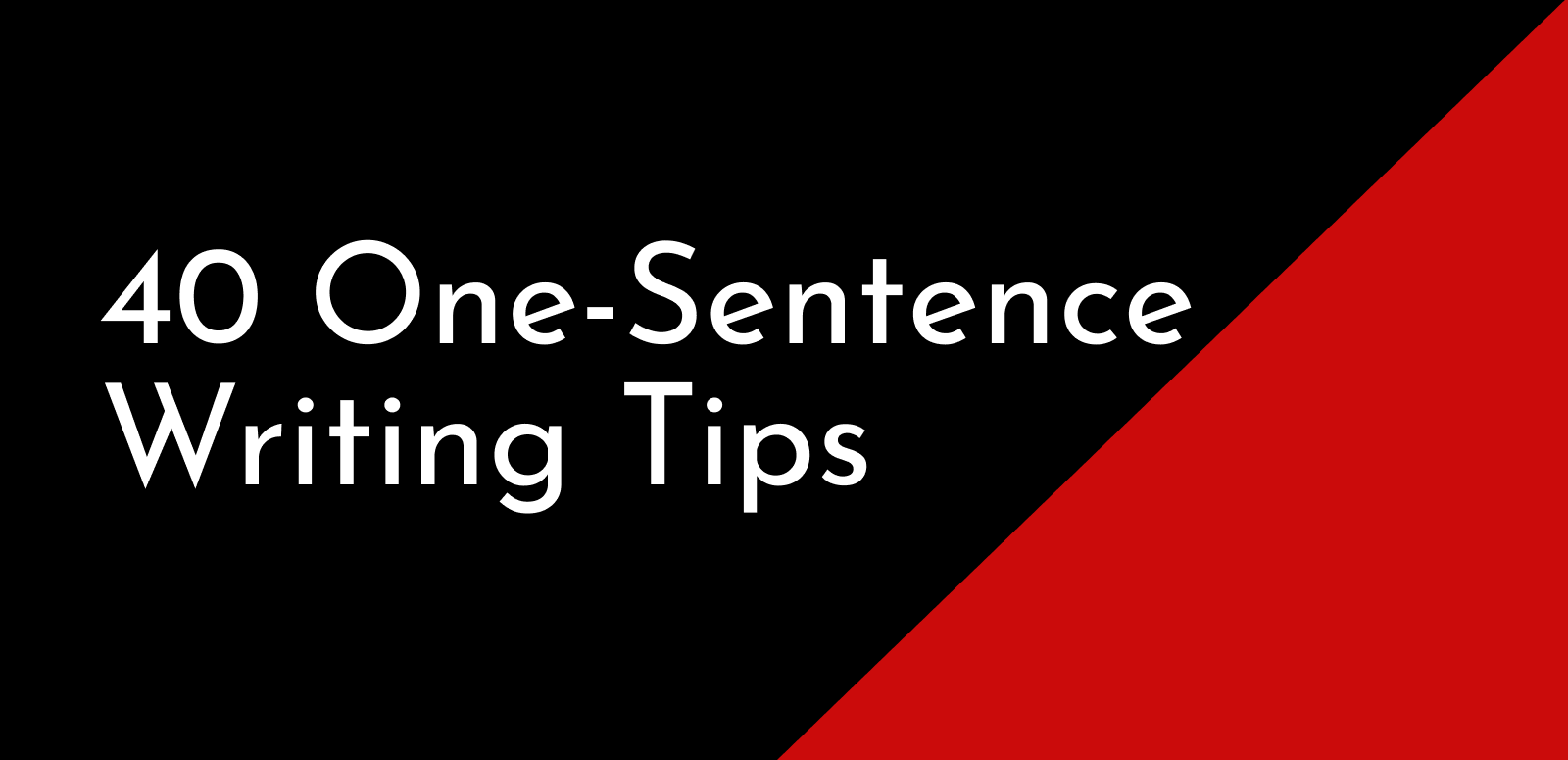- The Solo Founder Newsletter
- Posts
- 📰 Writing...
📰 Writing...
and something new for you, starting today!
This issue is sponsored by….
Grow your Engineering Team with LatAm

🌎 CloudDevs is your gateway to 10,000+ vetted LatAm engineers, hand-selected for your project in just 24 hours.
✏️ Our talent is rigorously tested for IQ, tech stack and communication, with 7+ years of experience.
📰 In today’s pick… it’s all about writing!
I’m researching articles for my ultimate “ultimate guide” to marketing. Here are some of the best articles about writing well, the lifeblood of your marketing.
But first, a new section I’m adding to the newsletter, called…

“Memefortainment”
It’s infotainment, but memes! Because every good newspaper needs a funny section, and I’m too untalented to draw.
Anyways, here’s today’s meme.

Now back to our schedule. Here’s today’s picks…
A Founder's Guide to Writing Well
Snippets:
Let your verbs do the work. Effective writing leans heavily on verbs and less so on adjectives and adverbs.
Choosing those words undoubtedly required careful thought and rigorous editing (the author was likely dictating from the bathtub). Yet most of us opt for the first verb that pops into our head, before larding up our sentences with junk filler until we’re satisfied the point has been made.
Invest time and energy in the verbs and your writing will improve.
In Professor Spengemann’s class, we were not allowed to use the verb “to be” (is, am, are, was, were) — ever. These laziest of verbs provide an escape hatch to writers while communicating nothing more significant than the equal sign. While syntactically correct and downright helpful, the verb “to be” was verboten in Sanborn Hall in September 1984.
For five and half years, I’ve religiously crafted a monthly email update for Upstart’s Board of Directors. With echoes of Professor Spengemann in my head, I regularly swap out lightweight volleys such as “Last month was a difficult one,” for sniper-like direct hits like, “Business tanked last month.” Fortunately, the news is rarely that disappointing, but when it is, my board members can expect to receive it sans-sugar.
First Round
40 One-Sentence Writing Tips - Advice for anyone who writes anything.
Snippets:
“I can’t write” is a lie.
Josh Spector
The Ultimate Guide to Writing Online
Snippets:
I’ve distilled the most important principles from the course into this guide.
• Writing from Abundance is the art of collecting ideas so you can think better and avoid writer’s block.
• Writing from Conversation is the art of using dialogue to identify your best ideas and double down on them.
• Writing in Public is the art of broadcasting your ideas to the Internet so you become a beacon for people, opportunities, and serendipity.
The game of online writing rewards people who publish consistently.
Though frequency is the price of entry, quality writing is a force multiplier on your success. If your ideas resonate, the number of opportunities available to you will explode. As you write, you’ll gain clarity around your Personal Monopoly — a unique online identity that emerges out of your skills, experience, and interests. As a compass, it’ll guide you towards the right people, meaningful work, and a life of freedom. By the end of this guide, you’ll have a roadmap for building one. Now, I’m going to unpack what it takes to become a successful online writer.
David Perell
21 Tactics to Help You Become a Better Writer
Snippets:
Create a “Banned Words” List The best way to improve your word choice is to focus on what to remove, not what to add.
These are the words we use in casual conversation that clutter our writing and impede its flow. Some of them are common (just, that, actually, pretty), some will be more personal (I use the words “great” too much). I’ve gotten better at spotting them over time, but I also keep a list of “banned words” to search my writing for once a draft is finished.
Sometimes, removing a word is difficult. “That” is particularly challenging to cut out in some cases, but I find if I take a moment to restructure the sentence to not need it, the sentence always sounds better. Others are easier. You can safely CMD+F for all instances of “pretty” and delete them unless you’re writing about your significant other. This list is ever-lengthening, but here are my current “banned words”:
• Just • That • Already • Actual / Actually • think • pretty • really • to be • great • around • a lot • very • thing • much • unfortunate / fortunate • nice
Now, some of them you need to leave in at times. But when you notice one being used, try to think really hard about whether or not it’s necessary. I like how I used “really” in the last sentence. I don’t use it often, so it has power when I do use it. I also think “like” was appropriate in the last sentence since I’m using it to express preference, not similarity. You get the idea.
Nat Eliason
Writing, Briefly
Snippets:
I think it's far more important to write well than most people realize. Writing doesn't just communicate ideas; it generates them. If you're bad at writing and don't like to do it, you'll miss out on most of the ideas writing would have generated.
As for how to write well, here's the short version: Write a bad version 1 as fast as you can; rewrite it over and over; cut out everything unnecessary; write in a conversational tone; develop a nose for bad writing, so you can see and fix it in yours; imitate writers you like; if you can't get started, tell someone what you plan to write about, then write down what you said; expect 80% of the ideas in an essay to happen after you start writing it, and 50% of those you start with to be wrong; be confident enough to cut;
Paul Graham’s Essays
The Day You Became A Better Writer
Snippets:
I went from being a bad writer to a good writer after taking a one-day course in “business writing.” I couldn’t believe how simple it was. I’ll tell you the main tricks here so you don’t have to waste a day in class.
Business writing is about clarity and persuasion. The main technique is keeping things simple. Simple writing is persuasive. A good argument in five sentences will sway more people than a brilliant argument in a hundred sentences. Don’t fight it.
Simple means getting rid of extra words. Don’t write, “He was very happy” when you can write “He was happy.” You think the word “very” adds something. It doesn’t. Prune your sentences.
Humor writing is a lot like business writing. It needs to be simple. The main difference is in the choice of words. For humor, don’t say “drink” when you can say “swill.”
Your first sentence needs to grab the reader. Go back and read my first sentence to this post. I rewrote it a dozen times. It makes you curious. That’s the key.
Write short sentences. Avoid putting multiple thoughts in one sentence. Readers aren’t as smart as you’d think.
Learn how brains organize ideas. Readers comprehend “the boy hit the ball” quicker than “the ball was hit by the boy.” Both sentences mean the same, but it’s easier to imagine the object (the boy) before the action (the hitting). All brains work that way. (Notice I didn’t say, “That is the way all brains work”?)
That’s it. You just learned 80% of the rules of good writing. You’re welcome.
Dilbert Blog
This is the free edition of The Solo Founder Newsletter. If you haven’t upgraded, to sign up for the full newsletter experience, plus the monthly roundups and additional perks, click here



